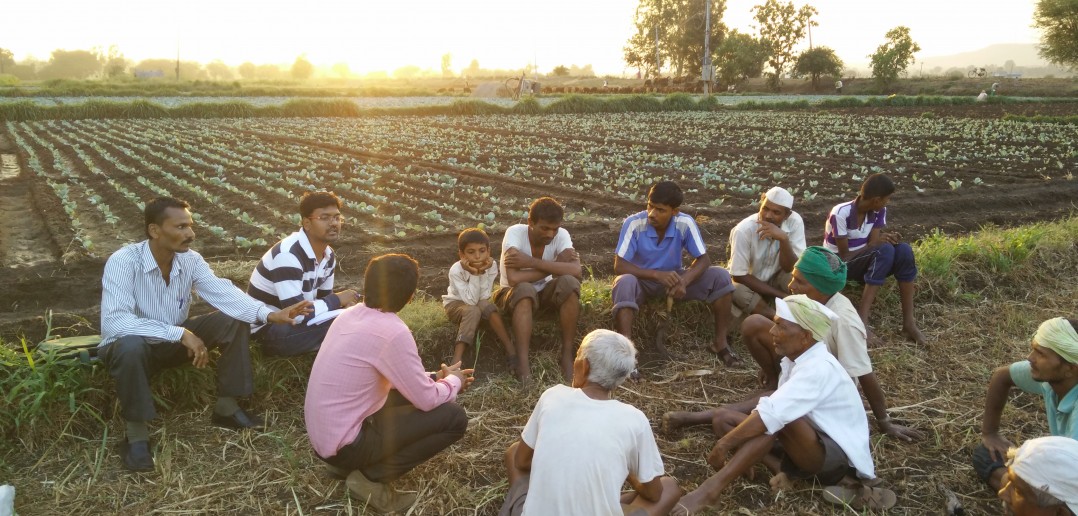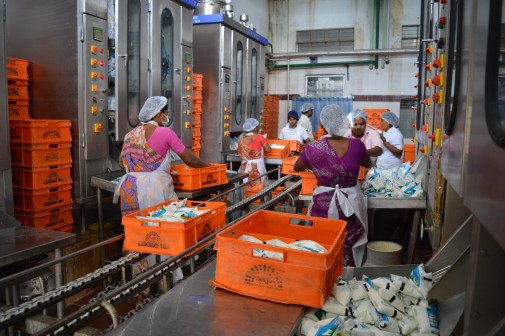National level skill development programs mostly talk about employment in formal sectors. Ironically, for 95% of India’s population employed in the informal sector, we need alternative approaches to sustain livelihoods. In this Skill Story, G. V. Krishnagopal, CEO, Access Livelihoods Consulting India Ltd (ALC India) discusses their success in combining skill development with micro entrepreneurship as a scalable model for mainstreaming the marginalized communities.
In India, skilling initiatives mainly aim at creating employable youth. Macro level agenda from NSDC is to skill and employ youth in formal sectors with systematic placement. This can secure jobs for a mere 8% to 9% of the people. What about those who work in the informal sector? Historically, India has been a land of self-employment and not employed people. A farmer or a carpenter is a self-employed person. They are not salaried, they are like entrepreneurs; they take risks. Today, 70% of the country is self-employed.

Combining productivity increase with better income
Our agenda is to ensure that the productivity and income levels of self-employed people increases. At ALC India, we integrate skill development efforts with generation of sustainable income for communities engaged in informal sector. We mostly work with marginalized farmers. For instance, a red gram (pigeon pea) farmer in Kodungal mandal in Mahabubnagar district of Telangana, will have two or three acres of land and he would be farming in a rain-fed area with no irrigation systems. He depends on single crop and his incomes are very meager.
We organize such farmers into companies that are owned by them. They farm individually but have a common enterprise that services door-to-door their inputs (organic, bio or chemical) and outputs (red gram). We also extend financial support. We mobilize farmers, organize them into a registered enterprise and take up skill development activities such as:
- Improve value realization across the value chain of red gram. We help them with pricing, market, warehousing, connecting them to a processing agency, and to the consumers. This eliminates the intermediary layers and profits directly go back to the farmers.
- Make better production practices available through research. We identify progressive farmers in the local area – who yield better results using the same geographical conditions than the average farmer. This helps in identifying best practices from local area and translating them to other farmers.
- Tie up with local agricultural research institutions like ICRISAT or other universities and adopt the best practices to suit local conditions.
In aggregate, our model, not only develops skills but also benefits the farmers in a sustained way because the enterprise will provide the input and output for years to come.
Initiatives in the dairy sector
Most dairy farmers are small farmers with one or two cattle and they live in rain-fed areas. Mostly, dairy activities are taken up my women. We take a cluster of 60-80 villages, we organize the women farmers in these villages into dairy farmers’ groups. These groups are aggregated and a company is formed. The women are shareholders of this company. The company provides input supplies, veterinary healthcare that runs 24X7, fodder, breed improvement and milk procurement at the doorstep of the farmers.

Once the enterprise is established, we then integrate it with skill development under schemes like the PMKVY. In the same villages, we take them through 50-60 days training program, provided they are interested in scaling up. The training program has apprenticeship and classroom component. We ensure that the farmer is not disturbed at work while training, hence the duration of training if 4 to 5 hours a day.
Catering to the unique learning needs
Because most of the farmers are semi-literate, 80% of our learning content is video-based. We also invite progressive farmers, host their talks and demonstrations. For field visits, we take them to nearby farms that have 5 to 6 cattle to show how to manage the cattle.
Post training, we help them in making a business plan for scaling their farms and managing it efficiently, with market alignment. We give them certificates after completing the course with the help of Agriculture Skill Council of India (ASCI). They are also assisted in getting bank loans.
Connecting the informal sector with formal sector skill councils (SSCs)
The SSCs need to connect meaningfully with communities to understand what kind of certification would help in informal sector. And then, design curriculum that doesn’t require high levels of literacy and computer knowledge.
For example, for production of crop like red gram, or preserving seeds or for rearing cattle – there are several traditional practices. If we de-recognize most of the traditional practices and depend on highly chemical intensive, institution-led, input-based production systems it creates an unhealthy imbalance in the ecosystem.
So how do the SSCs acknowledge the native knowledge and wisdom – this is going to be a big challenge. How do you marry the current scientific and technological trends with the indigenous knowledge systems established over a period of time? For example, Sristi / Honeybee network has recognized thousands of innovations in traditional production practices. How do we integrate this with the specifications from SSCs? These are tough tasks.
Impact and vision
We have impacted 65,000 people across 5 states with our unique way of combining skilling with entrepreneurship. We have conducted training programs for about 10000 farmers using funds from NSDC and government projects.
Our vision is to establish an accountable and transparent model for building skills of the informal sector producers and helping them to sustain enhanced incomes over a long period of time. This is just a nascent effort we require lots of support from the government agencies because most of the systems that are designed are for formal employment. These parameters need to be changed for informal sector while measuring placement ratio and other performance indicators.
Subscribe to our YouTube channel for more updates:
Subscribe on YouTube


